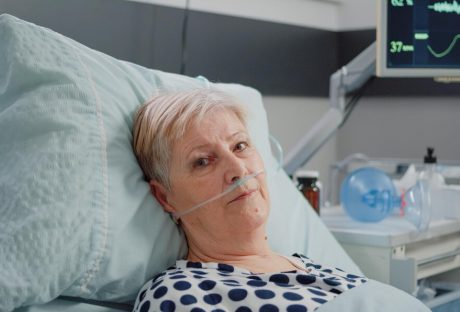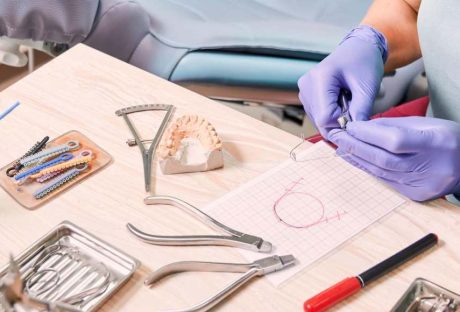In seeking radiant, youthful-looking skin, aesthetic skin clinics have emerged as veritable sanctuaries. These clinics excel at delivering optimal results, enhancing natural beauty, and boosting self-confidence.
But what is the secret behind their consistent ability to produce stunning aesthetic outcomes? In this blog post, we’ll delve into the world of aesthetic skin clinics to uncover the magic behind their success.
Expertise Matters
At the heart of every successful aesthetic skin clinic are highly trained professionals who possess an in-depth understanding of the intricacies of the skin. Dermatologists, nurses, and aestheticians are like skin wizards, armed with the knowledge and expertise to assess each individual’s unique needs and provide tailored solutions.
These experts have dedicated years to their education and hands-on experience, allowing them to address common skin concerns and tackle complex issues. Whether it’s acne scars, fine lines, pigmentation problems, or aging skin, the expertise of these professionals is the cornerstone of successful treatments.
Cutting-Edge Technology
Skin clinics invest in the latest technological advancements to stay ahead in aesthetics. From state-of-the-art laser treatments to minimally invasive procedures, these clinics have cutting-edge equipment that ensures the highest safety and precision.
One such innovation is the use of lasers in skin rejuvenation. Laser technology has evolved significantly in recent years, making it possible to treat many skin issues with minimal downtime and discomfort.
Personalized Treatment Plans
A fundamental principle that sets aesthetic skin clinics apart is their belief in personalized care. They recognize that one size does not fit all regarding skincare. Therefore, they consider numerous factors like skin type, age, lifestyle, and specific concerns to create a customized roadmap to optimal results.
The process begins with a thorough consultation, during which the clinician evaluates the patient’s skin condition and listens to their goals and concerns. This dialogue forms the foundation of the treatment plan, ensuring that it is tailored to the patient’s unique needs.
A Holistic Approach
Skin health isn’t just about external treatments but overall wellness. Many aesthetic skin clinics adopt a holistic approach, emphasizing the importance of a healthy lifestyle, proper nutrition, and medical-grade skincare products. They believe that a holistic approach enhances the results of treatments and promotes long-term skin health.
This means that patients are educated on in-clinic procedures and the importance of a consistent at-home skincare regimen. These regimens often include medical-grade products that contain active ingredients like retinoids, antioxidants, and growth factors. Such products can complement in-office treatments and maintain the achieved results.
Continuous Learning
The field of aesthetics is dynamic, with new treatments and technologies emerging regularly. Aesthetic skin clinics understand the importance of keeping up with the latest trends and techniques. Clinicians often undergo additional training and certifications to ensure that their patients receive the best care possible.
This dedication to continuous learning ensures skin clinics can offer their patients the most effective and safest treatments. It also reflects their commitment to excellence and staying at the forefront of the industry.
Transparency And Education
Aesthetic skin clinics are committed to educating their patients. They provide clear and transparent information about treatment options, expected results, potential risks, and costs. This transparency allows patients to make informed decisions about their skincare journey.
Patients are encouraged to ask questions and seek clarification about their treatment plan. This open and educational approach fosters trust and empowers patients to participate in skincare decisions actively.
Patient-Centered Care
The most crucial aspect of delivering optimal results is patient-centered care. Aesthetic skin clinics prioritize their patient’s needs and concerns above all else. They listen actively, address questions and concerns, and create a comfortable and supportive environment.
This personalized care extends beyond the treatment room. It includes post-treatment care and follow-up appointments to monitor progress and ensure that the patient is satisfied with the results. This commitment to patient-centered care fosters trust and ensures patients are actively involved in their treatment journey.
Stunning Results
With all these elements in place, the results speak for themselves. Patients leave aesthetic skin clinics looking beautiful and feeling more confident and empowered. The transformation is not just skin deep; it boosts one’s self-esteem and overall well-being.
The beauty of aesthetic skin clinics lies in their ability to provide results beyond the physical. They help patients regain self-assurance and feel more comfortable in their skin. Whether addressing age-related concerns, skin imperfections, or simply enhancing one’s natural beauty, aesthetic skin clinics deliver beautiful dermal and aesthetic outcomes.
Conclusion
Aesthetic skin clinics are aimed to deliver optimal results in the pursuit of beautiful dermal and aesthetic outcomes. Consider visiting a reputable aesthetic skin clinic to enhance your natural beauty and achieve radiant skin. Your journey to beauty and confidence begins there. The magic of these clinics lies in their unwavering dedication to making you look and feel your absolute best.
Read Also:
- Are you aware of Belviq – a Weight-Loss Drug?
- Seven Best Meal Replacement Ideas For Weight Loss
- The Science Behind Blue Light Glasses























